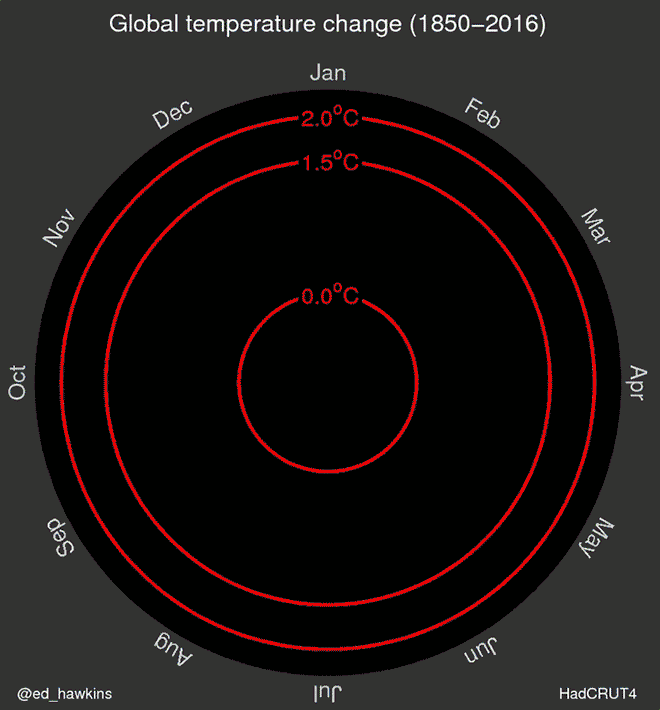|
Fasdar posted:
Ok, I'm a few glasses of wine in on the night but this is actually helpful to me in my work so here goes: You, specifically, may or may not be screwed in the medium term. But that will have consequences. Ok, so we know a little about the components of vulnerability: exposure is how naked/clothed you are before the various man-made flavors of the wrath of god (AC/number of attack rolls X average enemy bonus to hit score), your sensitivity is how much a given hazard or suite of hazards hurt (total HP +/- DR), your adaptive capacity is... your AC + whatever bullshit is cooking between you, your heart of hearts, the madness surrounding you, and the vicissitudes of fate. So far so good. But the real, dangerous, and almost impossible to answer question lies behind that of how to assess these various traits. That question is: What is vulnerable? What is exposed? Who is - or how many whoms are - sensitive? What sort of configuration of concrete, meat, cellulose, hashtags and timelines are adapting? Most of the work on climate change and its impacts on "social systems," as variously understood, has occurred at the global and national scale, and has been built around a range of various scenarios (my money is on RCP 8.5) developed within the climate change community at large to discuss the impacts of CO2 emissions on the climate system itself. As a result, much of this work has looked at things like the relationship between temperatures and national productivity averages, impacts to economic output based upon disaster occurrence rates, and other broad-scale, widely available indicators. If a dataset is big and out there, it has been or will be coupled with climate projection data, and very little of this kind of thing points out good news. Some of it even encourages those with large amounts of wealth to simply wait it out, as the costs of saving the world, for them, would potentially be greater than those associated with watching it end and investing in the next one. (This, at least, has been the criticism of many large integrated assessment approaches, which utilize economic data to gauge future impacts utilizing increasingly complex mathematical models. Whether such assessments are correct or not is another question...) Most of the broad-scale climate change impact research, however, has not been so rosy - not even for rich people. As best the collected knowledge of the concerned academia can surmise, the negative impacts of climate change will be huge across the board. Impacts from drought will be more intense and severe. Floods will occur more often, and in places where they may not be a well known component of the landscape. Hurricanes will potentially pack more of a punch, but will occur with less predictability - and crucially, with more chances of humans forgetting about what they can do. If there is bad weather somewhere, odds are it will get more intensely so, since the sheer physics of the system lead to the presumption of a greater range of intra-annual climatic variability. Wildfires will burn more homes, just when we were thinking of telecommuting from a cabin in the mountains. Even worse, growing seasons - the beneficence of which is tied to every level of the food-social-political system - will get all hosed up. The bottom of all of the pyramids will be at best shifting about (at worst quaking), and the systems that surround the different feeding troughs of a global network will have to move around. When, where, and how this will occur is a bit more uncertain, however. And although it is often discussed in much less blunt terms, it should, I think, be noted that herein lies the sort of chaos that real history is made of. Agriculture is not graceful. It smashes into new areas, and spends decades, at least, loving up royally before it understands the new conditions. It leaves like a tornado, forcing people living in highly specialized livelihoods to stare, defeated but still, usually, proud, at the world around them. When it succeeds, it attracts all sorts of pests and ill mindedness, greed, and short-sightedness (e.g.: carpet-bagging, absentee farming and overgrazing prior to and after the dust bowl, slash and burn in the Amazon rain forest, and, some might say, the overall commercialization and privatization of seed stocks) as it is always and forever lucrative to control the bellies of human beings. When it fails, it leaves often highly capable, shrewd, and physically robust people stuck in a maelstrom of emotions and truncated dreams. It leaves towns and even cities withered on the husk, so to speak. Rather, because most agricultural production occurs at the economic, social, cultural, and geo-spatial margins of the global system, global impacts to it can have especially momentous effects that synergize along numerous existing lines of conflict. Ranchers and farmers in the U.S. already don't like the government, even if they have a weirdly intense dependency upon it. Poor, pushed around farmers in India, SE Asia, and South America will die of heat-stroke well before the wealthier mouths they feed lack for flavoring, and onion shortages alone have led to sacked governments. Put another way, climate change is a global effect that will absolutely necessitate changes in agricultural systems. These changes will, mostly, cost money. Most farmers don't have it. Those that do... well, some of them are ok, and might manage the landscapes they acquire with a long-term view. Some of them are board-controlled corporate entities with moral scruples in direct proportion to the incapability of marketing to sway public opinion, and who already have massive amounts of global political power. Some of them are already really, really angry. Most of them will just be people trying to keep doing what they've been doing, even if most of what they've been doing is buying up land for next year with last year's profits. Whatever the case, agriculture will be more costly until well after whatever climate changes we induce stabilize (or, bizarrely, it all works out for the best as we switch to a diet of potatoes grown in the former Canadian tundra). This stabilization will not happen for generations upon generations. This is, simply put, the nature of the business - to be a the mercy of the range of local climatic variability. All that said, there have not been any (public, at least) attempts to quantitatively or qualitatively characterize the aggregate impacts of perturbations at all levels of contemporary human systems, as far as I am aware (unless you really want to count Naomi Wolf and the like). While some efforts to downscale climate projections, coupled with anthropological and sociological fieldwork within particularly vulnerable communities have begun to yield local-level climate vulnerability assessment and adaptation planning work in the U.S., Australia, Pacific Island nations, Europe and SE Asia, really understanding the multi-dimensional sum of all local vulnerabilities and their projection onto an inter-connected global system are not usually high priorities for researchers struggling against the expectation that their research will lead towards actionable solutions relevant to existing levels of governance. As a result, answering the question of "Are we screwed?" is actually really goddamn difficult when you start to take into account the wide range of variability among the 7+ billion or so pieces on the board (to say nothing of all their livestock, crops, and pets) and how they (and their children, and children's children) will react as the game progresses. This is especially true when we realize that, in the case of those who undertake land-based livelihoods like agriculture, the game has seemingly already been in motion for several decades. Because I am interested in this question, however, I have turned towards research that examines socio-ecological or "coupled-human-and-natural" systems. I'm doing this, because, increasingly, it seems like the questions being posed about whether or not the world will go to poo poo in my lifetime require an understanding of humanity as part of complex networks of resources, species, energy flows, ideas, symbols, and actions, and can no longer be captured through the purely "social" science approaches of anthropology, sociology, political science, and so on that were suitable to assessing the threats of the Cold War: because the climate itself is a powerful determinate of nearly every aspect of life on earth, understanding a given human population's vulnerability to it is impossible without also taking into account the variety of social system and ecosystem ties that define them. Of course, because of the overwhelming power of human activity within the overall biosphere, this approach requires a simultaneous return to some of the fundamentals of how human beings organize themselves in space and time, in relation to other species, and in relation to one another, and what that means for the species's ability to overcome the threats before it. .... gently caress it I'm tired I will post more tomorrow.
|
|
|
|

|
| # ? Apr 28, 2024 20:28 |
|
Fasdar posted:Quality posting. sitchensis posted:More quality posting. Thanks a million to the both of you, excellent posts. That both confirms a lot of uneducated impressions I've had on the problems as well as gave me some new insight. Exactly what I was hoping for. I am deathly afraid of what you're proposing might be the likely scenario, but given political history and what I know of the political developments of these "filter" countries like Turkey and Greece - particularly the stuff we're seeing now with the dealmaking with the EU and internment camps - I'm having a hard time finding reasons to contradict your logic. I'm hopeful that the democratically strongest nations in western EU won't accept this kind of development, but... the rise of right-wing politics and the history of right-wing extremism in response to immigration in pretty much all of Europe as well as the issue of hard self-interest voting... Yeah. A lot of people are screwed, and it's not us who will be feeling it first. Those poor bastards 
|
|
|
|
My sense of how bad things could get is informed by how poorly our international systems are responding the relatively (historically speaking, and looking into the future) minor harbingers of things possibly to come. Even if you don't claim it's climate change behind Syria, for example, it's hard to have faith that the world as whole, that I grew up believing was going to adhere to certain norms and values going forward, is going to be able to respond in a timely and appropriate manner to the much greater stressors and chaos that is already locked in at this point.
|
|
|
|
Fasdar posted:Ok, I'm a few glasses of wine in on the night but this is actually helpful to me in my work so here goes: Excellent write ups Fasdar. Seriously, two great posts in less than a day. Mozi posted:My sense of how bad things could get is informed by how poorly our international systems are responding the relatively (historically speaking, and looking into the future) minor harbingers of things possibly to come. Even if you don't claim it's climate change behind Syria, for example, it's hard to have faith that the world as whole, that I grew up believing was going to adhere to certain norms and values going forward, is going to be able to respond in a timely and appropriate manner to the much greater stressors and chaos that is already locked in at this point. Agreed. It's kind of the standard method when it comes to hoping the international community will pull together rather than fall into a tangled pile of disagreements...
|
|
|
|
Man, these last couple pages of effortposts are really appreciated. Thanks guys.
|
|
|
|
I'll drink some more wine later and post again, then, if people are digging it. Especially since, oddly enough, I actually do think there is some hope to be found when looking at the social side of things.
|
|
|
|
Fasdar posted:I'll drink some more wine later and post again, then, if people are digging it. Especially since, oddly enough, I actually do think there is some hope to be found when looking at the social side of things.
|
|
|
|
Grouchio posted:The globalization of the world economy is bound to become discredited as conservative bile sooner or later after all... Huh? If anything out system of global economics will be a key resource in adapting and mitigating climate change. For example, only because of globalization is solar as cheap as it is. You may be confusing resource exploitation, consumerism or something else for globalism.
|
|
|
|
I'm sure this isn't remotely whatever he may have been grasping at, but I do wonder if we do see seas rise significantly within 50-100 years how that could affect global trade and shipping, what with rendering existing large ports unusable.
|
|
|
|
Trabisnikof posted:Huh? For the economically illiterate (i.e. most people), globalisation, neolibrulism, kapitalism, and kommunism are basically the same thing, which is a thing you vaguely dislike. suck my woke dick fucked around with this message at 20:29 on May 5, 2016 |
|
|
|
Trabisnikof posted:You may be confusing resource exploitation, consumerism or something else for globalism.
|
|
|
|
Mozi posted:I'm sure this isn't remotely whatever he may have been grasping at, but I do wonder if we do see seas rise significantly within 50-100 years how that could affect global trade and shipping, what with rendering existing large ports unusable. Ports are going to be the least of our problems. We already have lots of inland ports some way up a river, if anything they'll be thrilled to take some load off the seaside ports.
|
|
|
|
So as a follow-up to Syria, what parts of the world do you guys think are next to have a similar ecological/social crisis in the near future? Potential hot-spots that could spark the next great wave of migrants? Are any third-world countries bound to adapt and improve better than others, or are they equally screwed? Which countries are bound to be really screwed?
|
|
|
|
Turkey. Turkey is a pot getting ready to boil over due to the stresses of climate change. For decades it's just been the Kurds fighting against the Turks, but as soon as the Turks turn against their own government, it's all going to implode.
|
|
|
|
Rime posted:Turkey. Turkey is a pot getting ready to boil over due to the stresses of climate change. For decades it's just been the Kurds fighting against the Turks, but as soon as the Turks turn against their own government, it's all going to implode. And don't think Erdogan and crew don't know it. They have been pulling concessions and hard deals out of the EU like a dentist pulling teeth from a meth addict for a while now, and they are going to leverage the current refugee situation as much as they can to ease turkish emigration into the EU as much as possible before they start getting overrun themselves with mideast refugees. They want the economic backing and support of western Europe both for mitigating climate change and to retain control over their region. I have no idea how that will develop, though.
|
|
|
|
Also, all the countries where people are already emigrating will be worse off. So basically everywhere in Africa that isn't South Africa or in the wet tropics, and anywhere in the Middle East where not everyone can afford buying air conditioning for their homes (so most of it).
|
|
|
|
Grouchio posted:So as a follow-up to Syria, what parts of the world do you guys think are next to have a similar ecological/social crisis in the near future? Potential hot-spots that could spark the next great wave of migrants? Are any third-world countries bound to adapt and improve better than others, or are they equally screwed? Which countries are bound to be really screwed? Well, like the effort posts have been pointing out, "it depends". Generally speaking, I imagine nations that have weak or weakening public institutions or loopy-iron-fist ruling regimes, and that have large populations vulnerable to climate change impacts will become the 'hot-spots'.
|
|
|
|
Zimbabwe is selling off a bunch of protected animals to keep their preserves open, because the drought has been making it difficult to keep them safe. I've mentioned the Great Green Wall initiative a couple of times before, but it does represent some degree of forward planning, which is nice to see. In some ways, they've got their poo poo together better than the West does.
|
|
|
|
Fasdar posted:I'll drink some more wine later and post again, then, if people are digging it. Especially since, oddly enough, I actually do think there is some hope to be found when looking at the social side of things. Please do. I've updated the OP with links to the posts since they're interesting and informative reads. As always, people should feel free to suggest articles (I've added a handful folks linked), posts, and other additions to the OP.
|
|
|
|

|
|
|
|
Not entirely on topic with the discussion, but I'm actually in the process of (hopefully) pivoting my research into climate change. I'm a physicist with experience in a variety of subjects, but more relevant for what I'm looking at is my experience in machine learning and non-stationary signal processing. The relatively new field of climate informatics appears to be, in part, an attempt at examining smaller scale effects of climate change. I want to get a handle on the variety of measurements, projects, and their significance with respect to the issue. I'm all ears for some technical overviews on remote sensing projects and a sort of catalog of observations akin to what is offered here: https://drclimate.wordpress.com/obs-catalogue/ if anyone has any suggestions. I am hoping to write a proposal around this time next year. Opportunities appear limited at the moment (as with everything in academia it seems) but I have applied to some temporary positions with NASA. Additionally, it appears that very few people have a background in energy and climate simultaneously. I am kind of aiming to become that person as my previous experience is in renewable energy research (carbon nanostructures, solar, storage). I'd love to see some resources from people with that perspective.
|
|
|
|
Kudaros posted:Not entirely on topic with the discussion, but I'm actually in the process of (hopefully) pivoting my research into climate change. I'm a physicist with experience in a variety of subjects, but more relevant for what I'm looking at is my experience in machine learning and non-stationary signal processing. The relatively new field of climate informatics appears to be, in part, an attempt at examining smaller scale effects of climate change. I want to get a handle on the variety of measurements, projects, and their significance with respect to the issue. I'm all ears for some technical overviews on remote sensing projects and a sort of catalog of observations akin to what is offered here: https://drclimate.wordpress.com/obs-catalogue/ if anyone has any suggestions. I am hoping to write a proposal around this time next year. I think it is. One of the biggest challenges in "adaptive" ecosystem management for federal agencies and others is the ability to monitor landscape change at fine enough resolution and yet broad enough scale to understand if interventions are working. In other cases, making interventions is similarly difficult due to the lack of infrastructure. There is going to have to be a new way if we are going to deal with the various ecosystem processes about to unfold. Basically, we need drone with the landscape penetration of bark beetles or thereabouts. Which sounds like what your background might touch upon. Look up the Phenocam project, for one example of distributed systems on land playing a role in remote sensing. http://webpages.uidaho.edu/jabatzoglou/PDF/22670.pdf
|
|
|
|
Might be able to get some ideas from the NEPTUNE project (that's an acronym and I ain't spelling it out). Undersea network but may be helpful.
|
|
|
|
Wasn't aware this goofy fucker had integrated climate change denial into his lame schtick but he is good at being loathsome so it's no great surprise.
|
|
|
|
Shell just spilled 90,000 gallons of oil in the Gulf of Mexico today. Here we loving go again.
|
|
|
|
Grouchio posted:Shell just spilled 90,000 gallons of oil in the Gulf of Mexico today. That's a relatively small spill and isn't a blowout like deep water horizon. Also unlikely to impact climate change significantly. However, EPA did just announce new rules on methane leaks that are more strict than the first draft: http://arstechnica.com/science/2016/05/epa-issues-rules-to-cut-methane-volatiles-from-new-oil-and-gas-sites/ EPA is following the same process for methane as they did for co2. This rule applies to new-build only but the next rule will apply to existing facilities.
|
|
|
|
Trabisnikof posted:That's a relatively small spill and isn't a blowout like deep water horizon. Also unlikely to impact climate change significantly. Yeah, that's 90 000 gallons of CO2 not going into the atmosphere. Also, it's ugly, unpopular and terrible PR for oil companies. It sucks for the local wildlife, but it's not necessarily bad for the rest of the world.
|
|
|
|
Nice piece of fish posted:Yeah, that's 90 000 gallons of CO2 not going into the atmosphere. Also, it's ugly, unpopular and terrible PR for oil companies. It sucks for the local wildlife, but it's not necessarily bad for the rest of the world. Well, a lot will get decomposed and metabolised by bacteria, producing CO2.
|
|
|
|
Nice piece of fish posted:Yeah, that's 90 000 gallons of CO2 not going into the atmosphere. Also, it's ugly, unpopular and terrible PR for oil companies. It sucks for the local wildlife, but it's not necessarily bad for the rest of the world. The Gulf of Mexico is already have serious environmental problems. It really, really doesn't need another one.
|
|
|
|
ToxicSlurpee posted:The Gulf of Mexico is already have serious environmental problems. It really, really doesn't need another one. And this spill likely won't be one. It is offshore and according to the coast guard already contained.
|
|
|
|
It isn't good or anything but 90,000 gallons is not a particularly large volume of oil. An Olympic swimming pool is something like 650,000 gallons.
|
|
|
|
Oh. And deepwater was....210 million gallons. Yeah I didn't read this right.
|
|
|
|
Trump taps climate change skeptic, fracking advocate as key energy advisorquote:Republican presidential contender Donald Trump has asked one of America's most ardent drilling advocates and climate change skeptics to help him draft his energy policy.
|
|
|
|
I've been looking at getting into a sort of science advising with emphasis on climate and energy. Part of that process is looking at existing advisers and holy poo poo most of them in the areas I've looked at are basically gas, coal, and oil people. It's to the point where I have to be careful about describing my positions and career desires because "energy adviser" is a trigger word for oil executive in some people's mind.
|
|
|
|
Kudaros posted:I've been looking at getting into a sort of science advising with emphasis on climate and energy. Part of that process is looking at existing advisers and holy poo poo most of them in the areas I've looked at are basically gas, coal, and oil people. It's to the point where I have to be careful about describing my positions and career desires because "energy adviser" is a trigger word for oil executive in some people's mind. "sustainable energy consultant"?
|
|
|
|
Kudaros posted:I've been looking at getting into a sort of science advising with emphasis on climate and energy. Part of that process is looking at existing advisers and holy poo poo most of them in the areas I've looked at are basically gas, coal, and oil people. It's to the point where I have to be careful about describing my positions and career desires because "energy adviser" is a trigger word for oil executive in some people's mind. There's typically renewable stuff in academia that's billed as "environmental" or "Green" or stuff like that.
|
|
|
|
Those are both good suggestions. The environmental and green also has some odd conflation about it too though, with a common emphasis (this is all anecdotal, I admit) on being anti-nuclear. I actually heard a guy a few years ago calling himself an environmental policy adviser. He worked with Mitch McConnell IIRC and was a coal guy.
|
|
|
|
Kudaros posted:Those are both good suggestions. The environmental and green also has some odd conflation about it too though, with a common emphasis (this is all anecdotal, I admit) on being anti-nuclear. I actually heard a guy a few years ago calling himself an environmental policy adviser. He worked with Mitch McConnell IIRC and was a coal guy.
|
|
|
|
"My advice to you, sir, is that the environment can take a few more for the team."
|
|
|
|

|
| # ? Apr 28, 2024 20:28 |
|
I feel like discussing climate change because it's been on my mind in recent weeks, so I'm gonna hop on this thread and hopefully spark some discussion. Unlike other topics I bring up, I am not dogmatically opposed to humans taking action to mitigate the effects of climate change if such action is warranted. I feel as though the environmentalist left has done an appalling job of addressing a number of important concerns and counter-arguments that people have. So I will now put forward a few of my thoughts and I am genuinely interested in hearing your response. I don't have the final answer on any of this, especially not something as complicated as climate science. The first question I'd like to ask is: what is your reason for having concern about anthropogenic climate change? This may seem like a self-evident question, but I think it is one that bears serious consideration. On the one hand, your primary concern regarding the effects of climate change could be the welfare of humanity. In this case, you'll worry about rising sea levels because coastal towns could be flooded, displacing people. You'd worry about increased storm activity because it will cause needless human deaths in the future, property damage and so forth. You might even worry that unchecked human activity would result in the climate being unlivable for humanity in a century or so. I'll call this the humanitarian environmentalist perspective. On the other hand, there are some environmentalists who believe that humans are essentially a cancer on the planet and they would be happy to see the human population cut by hundreds of millions if not billions. These types of radicals show the utmost concern about the potential extinction of a certain species of ant, but would not be moved if their policies caused human suffering on a mass scale and even deaths in the millions. In their more candid moments they might even say "yes, that is precisely the point". Humans are a scourge on the "pristine" natural environment, so they believe. I'll call these the "anti-human environmentalists". And there are a third type of environmentalist, which can and frequently do overlap with the first two categories, who are political ideologues whose "Green" veneer is more-or-less a smokescreen to criticize Capitalism. Advocates for free market capitalism essentially won the great debate of the twentieth century. Sure, most people still say we need to have lingering elements of socialism in the form of a "social safety net" and regulations to curb the "excesses" of Capitalism, but hardly anyone in the mainstream would dare to suggest that we need the State to own the means of production and abolish all private property. The fall of the Soviet Union was an important teaching moment for the world, which demonstrated the inherent failure of central planning. Most Marxist intellectuals didn't just admit the error of their ways and become proponents of laissez-faire. Far from it. A substantial number of them shifted their rhetorical attacks against Capitalism from arguments about how employers were exploiting workers, and workers need to own the means of production, to Capitalism is destroying the planet. Taking this position, it doesn't matter if free markets are more efficient, or provide greater generation of prosperity and higher living standards for everyone. If our actions are destroying the environment and there is an impending catastrophe lurking just a couple of decades into the future, we should voluntarily accept a lower standard of living now to save the planet, save endangered species, and so forth. What I am saying is that if some people have an a priori suspicion about the environmentalist movement, it is not without it's justifications. I think it's extremely important to state which camp you fall into and what your primary motivations are for having concern about human-caused climate change. Now let me share my perspective: The most important question to ask regarding climate change is how has our industrial activity and CO2 emitting behavior impacted human welfare? Has our industrial activity made the climate more or less hospitable for humans? The most important single statistic in this regard is climate-caused human deaths. The data shows that since humanity began it's industrial activity with the corresponding CO2 emissions, climate-caused human deaths have been rapidly declining decade after decade. Here is a useful graph to illustrate the point: http://object.cato.org/sites/cato.org/files/wp-content/uploads/boden.png Furthermore, we know that cheap and abundant energy and the corresponding industrial activity that it generates has improved human welfare unbelievably over the past century and a half and continues to do so. The average life-expectancy rose from 30 to 80, climate-related deaths plummeted, and a middle class with ever-rising standards of living came into existence for the first time in human history. In the early 21st century, free markets are allowing previously third world nations to generate their own wealth and their own middle classes. In these formerly-poor nations, life expectancy is rising and quality of life is improving. To my mind, it seems utterly abhorrent to prevent poor nations from having access to cheap energy which they desperately need to save the lives of their citizens and allow them to live at a decent standard of living. We in the first world have benefited from more than a century of industrial progress which enabled an enormous productive capacity, generating wealth and providing us a comfortable living. Most people in the world have not been so fortunate. We need to be very conscious of the effects that reducing fossil fuel use has on the developing world. Without a viable and immediate substitute for cheap energy, reducing fossil fuel use to the extent advocated by climate change proponents would cause tremendous human suffering. Let's suppose that all of the predicted effects of climate change are true and that climate models are generally accurate in predicting future global temperatures and weather pattern changes. Then the only relevant question we should be asking ourselves is whether or not the guaranteed harm to human welfare and survivability that will result from drastically limiting the use of fossil fuels is outweighed by the future benefit to human flourishing that would result from slightly lower sea levels, fewer natural disasters and things of that nature that environmentalists like to cite. This is a cost-benefit analysis that is never acknowledged by believers in catastrophic climate change. And this is even granting the veracity of climate models and assuming accuracy in future predictions, both of which are very much in question. I want to emphasize that there have been measurable and unambiguous polluting harm that has been caused by fossil fuel production. This is not acceptable and should be strictly curtailed by property rights protections. This, however, is quite different from CO2 emissions and worldwide climate change. If we care about human life, then we must care about industrial progress which allows humans to avoid climate-related deaths, escape poverty and permits societies to grow prosperous. Of course, this doesn't mean we don't care about the pollution that a given energy source does emit, in so far as it causes demonstrable harm, but we shouldn't impugn the most effective and efficient energy sources for their imperfections given the overwhelming benefit cheap, scalable energy has to human flourishing. I believe any artificial privileges States grant to oil companies should be removed and companies should bear full liability costs for the negative externalities of their energy production. If laws are passed that limit worldwide CO2 emissions by as much as climate change activists say is necessary to avoid "catastrophe", that means that many millions of people around the world, particularly in poor and developing nations that desparately need cheap energy sources to grow into the first world, with a middle class and productive capacity, will be consigned to extreme poverty or death. This could be avoided if there were an abundant, scalable, efficient alternative energy source that could be used as a viable replacement. It would have to be able to fully replace the fossil fuel energy that will be cut AND be able to greatly grow in the coming decades as developing nations increase their industrial production in a bid to become prosperous like us in the West. Yet the alternative energy source we are told we must rely on, Wind and Solar, are wholly incapable of providing the reliable, cheap, abundant and scalable energy that is needed. There are many reasons this is so, but one is that these technologies are intermittent. They rely on particular weather patterns to generate their energy production. In almost every case, they need to be backed up by a fossil fuel based source which will kick in when the wind and solar source is not provided the needed energy. These are, now and in the near future, unreliable and unserious sources of energy which cannot replace fossil fuel based energy. If Wind, Solar or some future energy source is invented which will be able to provide cheap, effective, scalable energy in abundance which improves upon fossil fuel technologies regarding pollution, I would be the first to stand up and cheer the development. But the very fact that environmental activists require government subsidization of Wind and Solar and legislation which limits fossil fuel energy gives the game away. What we ought to do is cut ALL government subsidies and privileges to any form of energy and allow entrepreneurs to compete in the market. This is how we can determine the best source of energy. The ONLY form of energy that is non-CO2 emitting which is scalable, reliable and efficient enough to fully compensate for fossil fuel sources is Nuclear energy. Yet there are virtually no climate change activists that I am aware of that are pushing Nuclear energy as a replacement for fossil fuels. Climate activists also tend to oppose hydro-electric power. Why don't members of the Green movement eschew political activism, pool their resources and enter the market as entrepreneurs by developing alternative energy sources and convinces consumers to purchase a superior, cleaner form of energy? Even if every single prediction of the most alarmist climate activist is true, it does not imply that political action is the best remedy. In fact, States are by their nature slow, lumbering, inefficient behemeths with perverse incentive structures. It is incredibly unlikely that politicians and politically-motivated special interest subsidization will actually solve the problem. Worse, you're going to have to deal with Republican presidents and Congresses at least 50% of the time over the next several decades. What would make you think that political authorities that don't agree with you won't simply cut funding or sabatoge your carefully constructed political solutions to climate change which will, after all, take decades to reap tangible benefits? When, ever, have politicians and government employees, insulated from the market feedback mechanism of profit and loss, had low time preferences needed to plan responsibly for decades into the future? Privately funded efforts, on the other hand, can be managed by experts who truly believe in the effort that is being pursued without the threat of petty politics sabotaging the effort. You don't have to worry about either Green cronies or Oil cronies getting in bed with government to manipulate the economy and the law in their favor. If alternative energy sources are "ready for primetime", as is being claimed, then go into the market and prove it. It is morally wrong to use force to prevent free people from producing and/or using the best, most reliable source of energy they have access to, as consumers on the market have chosen. I loving hate how politics destroys civility. If you have a worthy cause, then invest your own time and money into a project, and use persuasion to convince other people to change their behavior. If an oil company, an individual or group of people are acting in a way which is causing demonstrable harm to the person or property of others, then you should take them to court and force them to stop. But you have to demonstrate clearly the harm an individual actor has caused before force can legitimately be used to provide just compensation to the victim and enforce an injunction to prevent him or her from continuing their rights-violating behavior. However, "emitting CO2" does not, according to the data, seem to be an actionable offense. The data shows an inverse correlation between CO2 emissions and constantly lower and lower climate-related human deaths, longer lifespans, less disease, and higher standards of living all around. Correct me if I'm wrong, but isn't the primary reason we are supposed to be alarmed about future climate change and continuing CO2 emissions because this change in climate will cause injury and suffering? Then why has the preponderance of data over the past century shown precisely the opposite? What WILL absolutely cause human death and suffering is a lack of access to cheap, abundent energy that is required to produce food, build and maintain hospitals, heat homes and manufacture goods and services which makes human lives sustainable and, hopefully, comfortable. So artificially limiting access to cheap energy will certainly cause massive human suffering. But speculated human suffering caused by rising CO2 emissions don't seem to be correlated by the data. I am trying to look at this objectively, from a humanitarian perspective. If we can develop cleaner and more environmentally friendly energy sources that are cheap enough and scalable enough to take over from fossil fuels, I would be ecstatic. I certainly think this is possible, but it won't happen through politics. It will happen in the market, by entrepreneurs risking private capital and risking private losses. That is where your energy should be spent if you are passionate about this issue. (USER WAS BANNED FOR THIS POST)
|
|
|















 I CANNOT EJACULATE WITHOUT SEEING NATIVE AMERICANS BRUTALISED!
I CANNOT EJACULATE WITHOUT SEEING NATIVE AMERICANS BRUTALISED!















